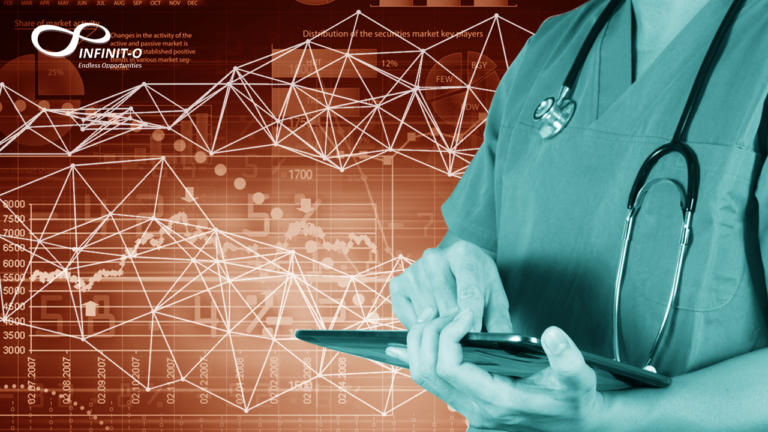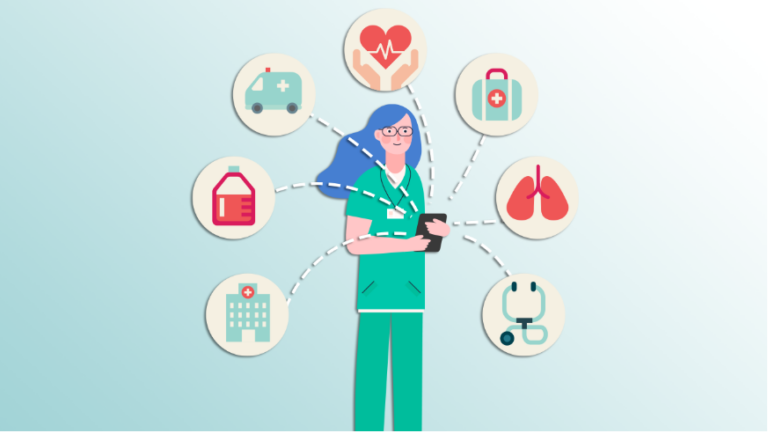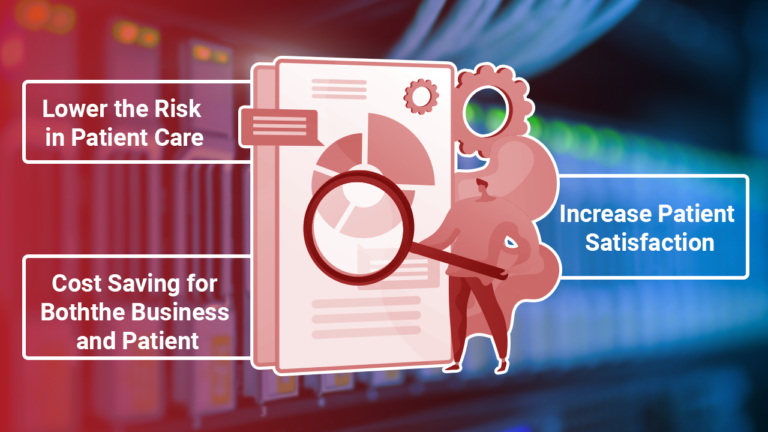5 Ways Big Data is Impacting Healthcare
Doctors and nurses gather high volumes of data on a daily basis. Over 2.5 exabytes of data were measured on a daily basis in 2012, from the healthcare industry. From patient histories, laboratory test results, diagnosis, to drug prescriptions, hospitals are a goldmine of medical information. Electronic health records (EHR) alone gather data at lightning speeds. The healthcare industry’s collective data can be described as high volume, high velocity, and high variety—in other words, there is the potential to gather and analyze big data. Volume is the amount of data measured in petabytes or terabytes; variety is the different types of data such as video, text, audio, and log files; velocity is the speed of data processing streams from sources such as mobile devices and machine-to-machine transfers.
According to the Journal of Biometrics & Biostatistics, big data analytics employs big data tools to discover hidden patterns, unknown correlations, and other important business information. These tools are able to go through the high-volume, high-variety, and high-velocity information assets in a way regular data analytics tools cannot. A partnership between healthcare and big data has huge potential for positive results. The IBM Institute of Business Value reports a 5 to 6 percent increase in productivity among conventional business firms. In 2012, the National Science Foundation’s solicitation for big data grants envisioned “biomedical discovery and patient-centered therapy” from health, genome, disease, and environmental bases.
Big data analytics paves the way to a bright and progressive future in healthcare. Here are the other positive impacts of big data for hospitals, clinics, and other medical providers.
1. Shorter Waiting Times for Patients
Predictive analysis can be used to study a hospital’s admission rates. Based on this number, a hospital can successfully delegate the number of patients across their staff. Waiting times are reduced and doctors enjoy a more efficient flow of appointments. As a result, hospitals spend less on overhead and reduce the hours worked by their staff.
2. Lower Healthcare Costs
Memorial Care tracked its physician performance analytics from its six hospitals. From this data, they were able to reduce individual patient costs by $280, which totaled $13.8 million in annual savings. The analysis showed that a high percentage of the costs came from annual accidental patient deaths. Many clinicians could not keep up with the large volume of data needed to provide the correct drug therapies. Big data analytics stepped in to gather massive information on negative interactions, addictive toxicities, and drug side effects. The analysis enabled lower readmissions, hospitalizations, and patient deaths.
Dallas Parkland Hospital also lowered costs from employing big data analytics. Their high-risk patients were cataloged using predictive modeling and analytics. Results showed the patients’ health outcomes during hospital discharge. This led to a lowered patient readmission for heart failure by 31 percent and annual hospital savings reached $500,000.
3. Higher Healthcare Service Quality
Accurate results are achieved alongside lower healthcare costs. Big data analytics can be employed to personalize a patient’s treatment based on their lifestyle, environment, and genetic makeup. At the same time, data is considered with other cases to provide doctors patterns for a more accurate analysis.
Other big data and healthcare platforms from companies like Apple and IBM are developing insights based on real-time activity and biometric data. The platform users’ health information is tracked and the system suggests a treatment based on their age, medical histories, past conditions, habits, etc. Patients on the platform can get medical consultations on the go or at home, as the information is transferred to a doctor’s smart device. Doctors can monitor patients and send reminders regarding medicines.
4. Improved Clinical Trials
Big data is a major contributor to modernizing clinical trials done for medicine and disease cure research. It has played a big role in the research for a cancer cure. Healthcare informatics solutions for big data is used to select the best candidates for these trials. Researchers will be able to find the required and most desired traits from the massive amount of data available. As a result, the medication’s effectiveness will be tested more accurately.
5. Assuring Data Security
All healthcare organizations must follow the HIPAA act to protect their patients and their confidential data. Insurance records and payment details are at risk along with the confidential medical information. A healthcare informatics solution’s infrastructure and expertise assure protection of all the relevant information. It has the necessary infrastructure to prevent and discourage cybersecurity breaches.
Your hospital or clinic will need a reliable company to execute these healthcare informatics solutions. Unfortunately, not all organizations have the resources to hire data analysis experts and the necessary IT infrastructure for a big data investment. You can, however, invest in a healthcare outsourcing company. These companies have the expertise, experience, and resources to keep up and provide beneficial results from your big data. Companies like Infinit-O provides services in data analytics, healthcare application development, and other patient services. Infinit-O has the expertise and technology to provide high-quality solutions that result in improved efficiencies, cost savings, and optimize business value. Contact Infinit-O today and see what the future holds in big data analytics.
Infinit-O is the trusted customer-centric and sustainable leader in Business Process Optimization to Small and Medium businesses in the Financial Services, Healthcare and Technology sectors by delivering continuous improvement through technology, data and people.
When you’re ready to grow, think Infinit-O!
Healthcare
Finance and Accounting
Data and Research
Information Technology Outsourcing
Customer Care







This site is protected by reCAPTCHA and the Google Privacy Policy and Terms of Service apply.